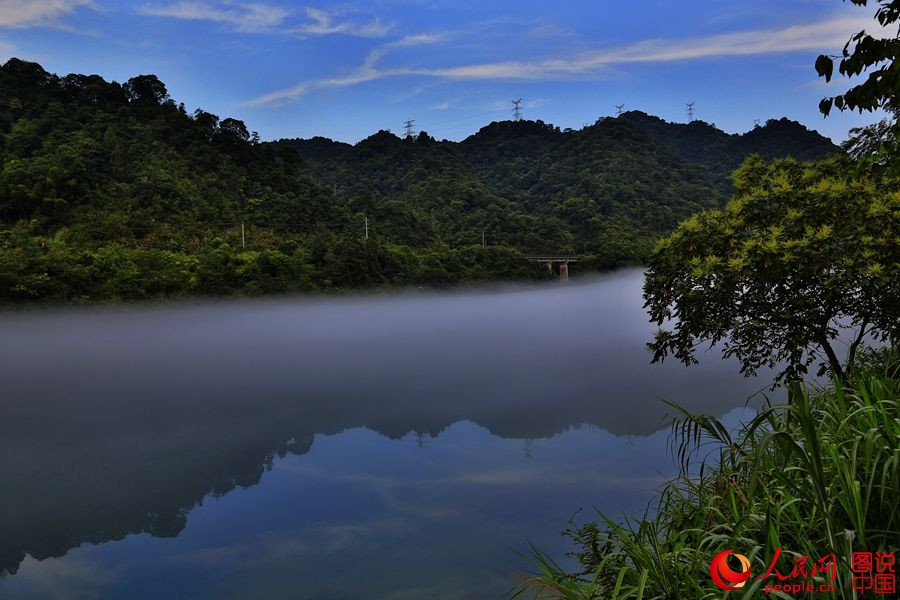 Vintage cars show kicks off in London
Vintage cars show kicks off in London
 Gorgeous scenery in NE China
Gorgeous scenery in NE China
 Picturesque Barkol grassland in Xinjiang
Picturesque Barkol grassland in Xinjiang
 Small Wild Goose Pagoda - A World Cultural Heritage Site along the Silk Road
Small Wild Goose Pagoda - A World Cultural Heritage Site along the Silk Road
 Maritime Silk Road Luxuries of the Han Dynasty
Maritime Silk Road Luxuries of the Han Dynasty
 Ciao! Chinese beauties!
Ciao! Chinese beauties!
 An eye feast: BFA freshmen registration
An eye feast: BFA freshmen registration
 Top 10 most lavish weddings
Top 10 most lavish weddings
 Most amazing chi-pao beauties
Most amazing chi-pao beauties
 Chinese lingerie brand arrives in Las Vegas
Chinese lingerie brand arrives in Las Vegas
According to Japanese media outlets, the Japan-China Economic Association has sent a delegation of more than 200 executives from major Japanese firms, the largest business mission on record, to China on Monday. The trip, which will last until September 27, is mainly aimed at paving the way for a meeting between leaders of the two countries. As the 2014 Asia-Pacific Economic Cooperation (APEC) summit will be held in November in Beijing, Japanese Prime Minister Shinzo Abe considers a meeting with his Chinese counterpart Xi Jinping as one of his most important current diplomatic goals. Tokyo has suggested that a bilateral meeting with Beijing is key to easing the escalated tensions and demonstrating to the rest of the world that it is China that holds the initiative.
Japan's business circle has made efforts to facilitate a meeting between the two heads of state out of goodwill. However, everyone should understand that this so-called rhetoric that such a meeting is key to saving the tattered relations between Beijing and Tokyo is a pseudo-proposition.
Abe's cabinet has reversed the causal relationship of its tough China policy and the failure to hold high-level exchanges with Beijing.
We may have to wait until the last moment to see whether Xi and Abe will meet or talk on the sidelines of the APEC summit. Nonetheless, whether they do meet is not a crucial point in Sino-Japanese ties. By directing people's attention to this suspense, Abe intends to make them forget the sabotage he has caused to bilateral relations. And he has attempted to make people accept his visit to the Yasukuni Shrine and his framework of an anti-China alliance as the new starting point of China-Japan relations.
The key to salvaging the strained Sino-Japanese ties lies in the Abe administration changing its provocative policy toward China and showing sincerity to control bilateral differences. Abe has long acted as a double-dealer full of hypocrisy.
In reality, it will be difficult to thaw the frozen Beijing-Tokyo ties in the short-term.
As long as Abe holds power, current Sino-Japanese relations will probably continue in the future. The two countries should ponder how to adapt to the cold peace that is, anyway, better than the cold war and configure a renewed architecture of stability in their relationship.
The two sides should maintain the cold peace and avoid a new cold war and especially a military collision, which requires them to reach a tacit understanding on the code of conduct of their own law enforcement over the Diaoyu Islands.
Economic cooperation and people-to-people exchanges are mutually beneficial, which should be encouraged by the governments of both China and Japan. We should try to reduce the negative impact of cold politics on the development of economic and cultural ties and always keep a sober mind about this.
 Giant white gourd weighing 87 kilograms appears in SE China
Giant white gourd weighing 87 kilograms appears in SE China Advanced arms help to safeguard China-ASEAN Expo
Advanced arms help to safeguard China-ASEAN Expo Leading director Wang Quan'an detained for 'buying sex'
Leading director Wang Quan'an detained for 'buying sex' Heaven on earth: Dongjiang Lake in Hunan
Heaven on earth: Dongjiang Lake in Hunan Mixed reaction to smartphone sidewalk
Mixed reaction to smartphone sidewalk 'Rainbow running' race in Jiangxi
'Rainbow running' race in Jiangxi Amazing aerial photos of China's Xisha Islands
Amazing aerial photos of China's Xisha Islands Beautiful postgraduate teaches in remote area
Beautiful postgraduate teaches in remote area Top 10 world's highest-paid models 2014
Top 10 world's highest-paid models 2014 Lingerie show at 2014 Miss China
Lingerie show at 2014 Miss China Songstress Li Xianglan dies at 94
Songstress Li Xianglan dies at 94 Police recruiting posters
Police recruiting posters Anshun Daxi- Living fossil of Chinese drama
Anshun Daxi- Living fossil of Chinese drama Urban farmers in China
Urban farmers in China 'Firepower-2014 Weibei'military exercise
'Firepower-2014 Weibei'military exerciseDay|Week|Month